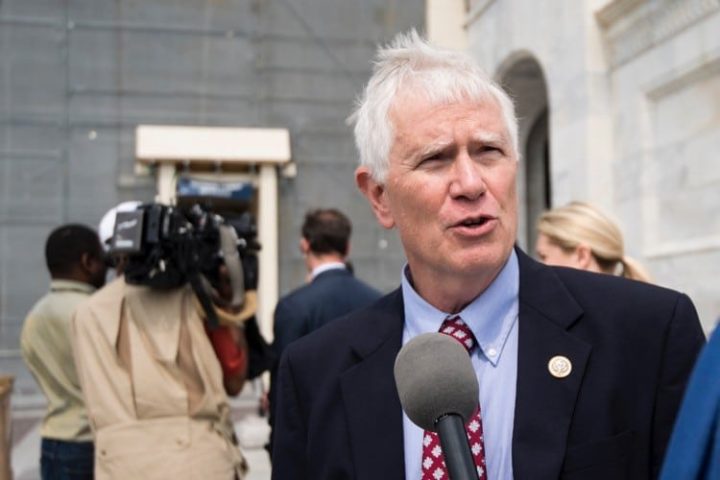
In an interview on Lou Dobbs Tonight on Monday, Representative Mo Brooks (R-Ala.) declared he will not be part of the “surrender caucus”:
I have a choice: I can either sit back and surrender and be a part of the surrender caucus. Or I can fight for our country.
And that’s what I’m going to do.
So, on January 6 I’m going to object to the submissions of Electoral College votes from various states that, in my judgment, have such flawed election systems that their vote counts are unworthy of our ratification in the United States Congress.
He explained:
What has happened nationally … [is] that if we only counted lawful votes cast by eligible American citizens, Donald Trump won the Electoral College, and we should not be counting illegal votes and putting in an illegitimate President….
The law is very clear: the House of Representatives in combination with the United States Senate has the lawful authority to accept or reject Electoral College vote submissions from states that have such flawed election systems that they’re not worthy of our trust.
In an interview with the New York Times, Brooks said, “We have a superior role under the Constitution than the Supreme Court, than any federal court judge does, than any state court judge does. What we say, goes. That’s the final verdict.”
He’s referring to the 12th Amendment, which says, in part:
The person having the greatest number of votes for President, shall be the President, if such number be a majority of the whole number of Electors appointed [currently 270 or more]; and if no person have such majority, then from the persons having the highest numbers not exceeding three on the list of those voted for as President, the House of Representatives shall choose immediately, by ballot, the President.
But in choosing the President, the votes shall be taken by states, the representation from each state having one vote.
Assuming that Brooks is able to secure a similar objection from a senator — Ron Johnson of Wisconsin and Rand Paul of Kentucky have said they would do so — then the joint session of Congress divides and retreats to opposite sides of the Capitol for a two-hour debate and then a vote on whether to disqualify a particular state’s votes.
If just 36 votes from states where voter fraud is most evident — Arizona, Pennsylvania, Nevada, Georgia, and Wisconsin — are rejected, then the vote moves to the House of Representatives for final adjudication and confirmation.
If that happens, then the 12th Amendment kicks in: “The votes shall be taken by states, the representation from each state having one vote.” And, with Republicans controlling more than 26 states, the House could then declare President Donald Trump the winner of the contest.
In his Times interview, Brooks was circumspect on his purpose:
My No. 1 goal is to fix a badly flawed American election system that too easily permits voter fraud and election theft.
A possible bonus from achieving that goal is that Donald Trump would win the Electoral College officially, as I believe he in fact did if you only count lawful votes by eligible American citizens and exclude all illegal votes.
To urge your U.S. representative and senators to reject the electoral votes in disputed states, visit The John Birch Society’s legislative alert here.



